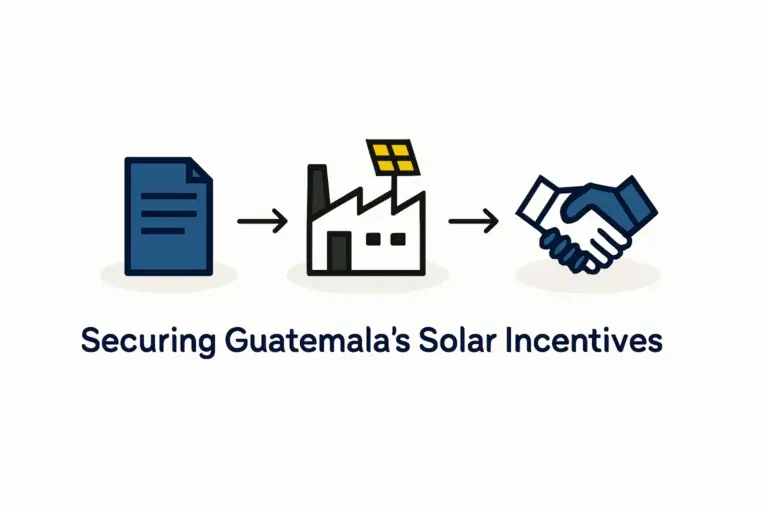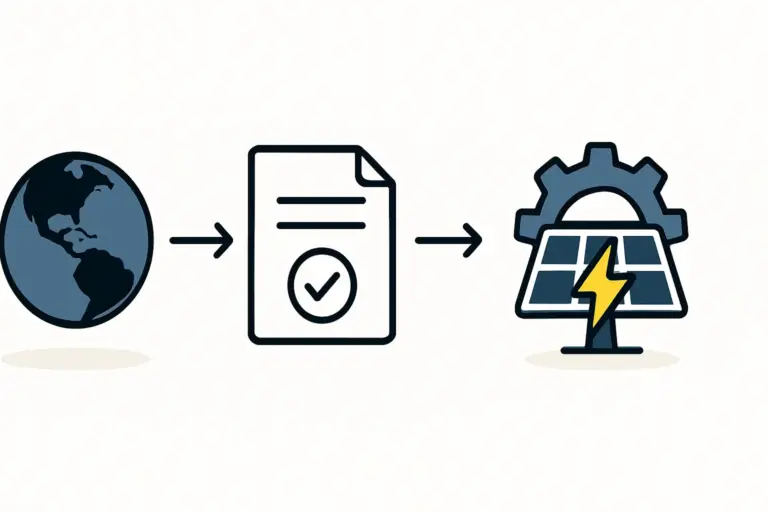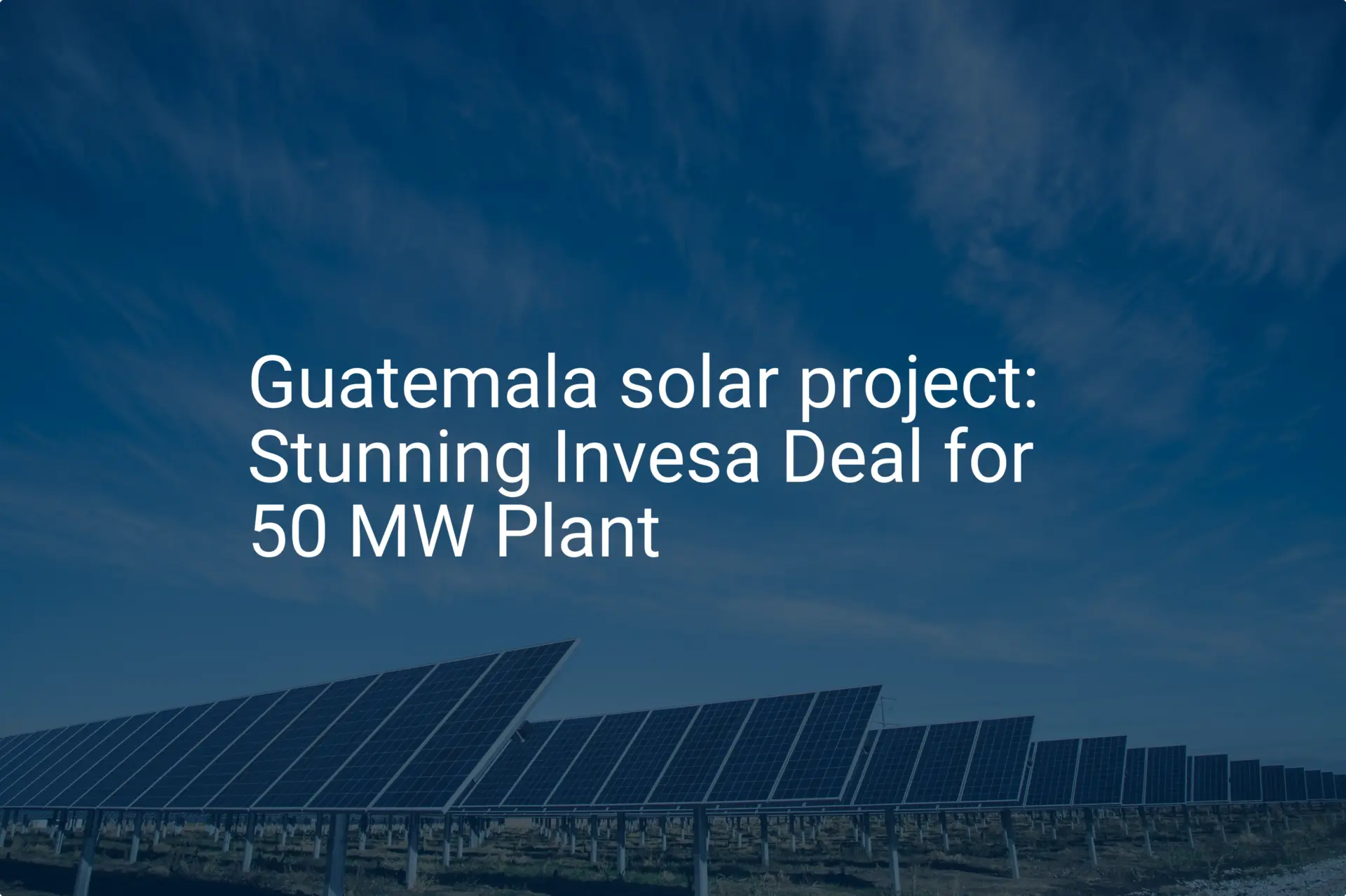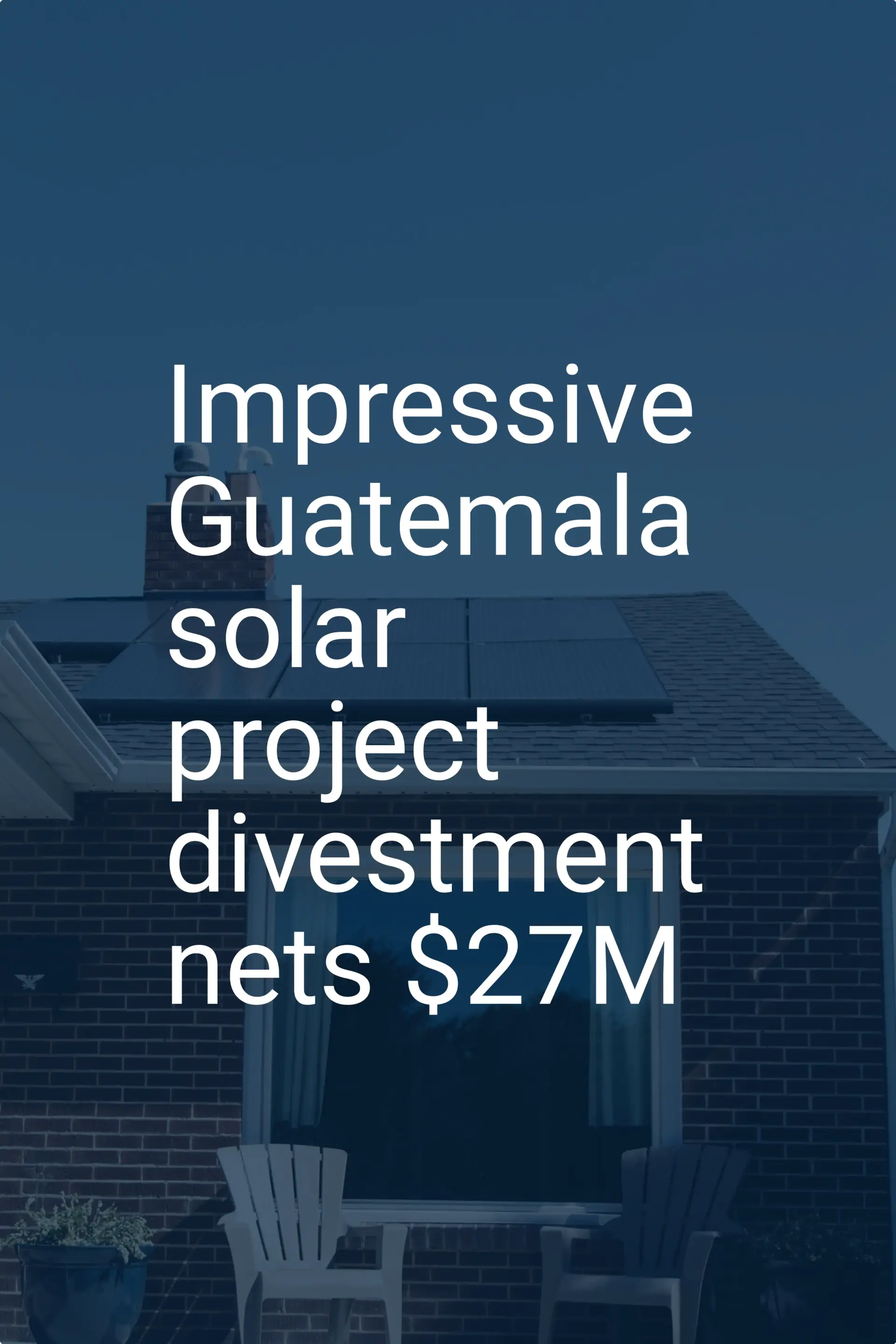An investor looking at Guatemala sees a country with abundant sunshine, a growing economy, and a strategic position connecting North and South America. The potential for a solar module factory is clear, addressing both local energy needs and export opportunities.
Yet, a fundamental question remains: how can such an industrial project be financed? The path from vision to reality is paved with capital, and understanding the local financial landscape is the first critical step.
This guide outlines the financing models available for a solar module factory in Guatemala, examining the roles of local commercial banks and highlighting the significant opportunities offered by regional and international development finance institutions (DFIs). Our goal is to equip entrepreneurs and investors with the knowledge to navigate this process effectively.
Understanding Guatemala’s Investment Climate
Before approaching any financial institution, it’s essential to understand the project’s economic context. Guatemala stands out in Central America for its macroeconomic stability and is the largest economy in the region.
According to the U.S. Department of Commerce, Guatemala generally maintains a favorable investment climate. The country has posted consistent economic growth over the past decade, demonstrating remarkable resilience. However, potential investors should be aware of challenges like bureaucratic hurdles and infrastructure gaps, which require careful planning and risk mitigation.
A solar module factory, as a strategic industrial asset, aligns well with national priorities for economic development, energy security, and job creation, making it an attractive proposition for financiers.
Avenue 1: The Local Commercial Banking Sector
Guatemala’s robust financial system includes 17 commercial banks. For an industrial project, the most prominent institutions to consider are:
- Banco Industrial: One of the largest and most established banks in the country, with significant experience in corporate and industrial financing.
- BAC Credomatic: A major regional bank with a strong presence in Guatemala, offering a comprehensive suite of services for businesses.
- Banrural: While initially focused on rural development, Banrural has expanded into a full-service bank with a vast network and experience financing productive projects.
Foreign investors can legally access credit and financial services from these local banks. The process typically involves presenting a comprehensive business plan for a solar module factory, complete with detailed financial projections, a market analysis, and a clear operational strategy. Local banks will assess the project’s viability, the management team’s experience, and the availability of collateral. For a new market entrant, establishing a local presence and building relationships with these institutions is a key first step.

Avenue 2: Development Finance Institutions (DFIs)
For a large-scale project like a solar module factory, development banks are often a more suitable source of long-term, structured capital. These institutions have a mandate to foster economic development, and renewable energy projects are a high-priority sector.
Key DFIs active in Guatemala and the region include:
Central American Bank for Economic Integration (CABEI)
As the region’s primary development bank, CABEI is a vital potential partner. Its mission is to promote the economic integration and social development of Central America. CABEI actively finances both public and private sector projects, with a strong focus on:
- Sustainable Infrastructure: Including energy generation and transmission.
- Energy Competitiveness: Supporting projects that enhance energy efficiency and promote renewable sources.
- Human Development and Social Competitiveness: A solar factory contributes through job creation and technology transfer.
CABEI offers various financial products, including long-term loans and credit guarantees, often with terms more favorable than those available from commercial lenders.
Inter-American Development Bank (IDB) Group
The IDB is a leading source of development financing for Latin America and the Caribbean. For private sector projects, its arm, IDB Invest, is the entity to approach. IDB Invest offers a range of solutions, including loans, equity investments, and advisory services. Its strategic priorities—climate action, regional integration, and sustainable value chains—align closely with a solar manufacturing project. A project that can demonstrate a positive environmental impact alongside a strong business case is well-positioned to attract their interest.
International Finance Corporation (IFC)
The IFC, a member of the World Bank Group, is the largest global development institution focused exclusively on the private sector in emerging markets. It provides investment, advisory, and asset management services. For a project in Guatemala, the IFC prioritizes strong development impact, such as creating skilled jobs, fostering a new industrial sector, and contributing to the country’s clean energy transition. The total investment required for a solar panel factory often falls within the range the IFC considers for its direct investments.

Strategic Financial Advantage: The Maquila Law (Decree 29-89)
Understanding the “Ley de Fomento y Desarrollo de la Actividad Exportadora y de Maquila” (Decree 29-89) is a critical part of financial planning for a solar factory in Guatemala. This law provides significant tax incentives for businesses that produce goods for export.
A solar module factory structured under this regime could benefit from:
- A 10-year exemption from income tax.
- Exemption from customs duties and VAT on the importation of machinery, equipment, raw materials, and other necessary inputs.
These incentives dramatically improve a project’s financial projections by increasing its profitability and reducing its payback period. When presenting to banks or DFIs, demonstrating qualification under Decree 29-89 makes the investment proposition substantially more attractive.
Preparing Your Project for Financing Approval
Securing capital from any of these institutions requires meticulous preparation. Based on experience from J.v.G. turnkey projects, a successful financing application comes down to clarity, professionalism, and exhaustive detail.
The core elements include:
- A Bankable Business Plan: This document is the foundation of your application. It must move beyond an idea to present a clear, data-driven case for the factory’s success.
- Detailed Financial Projections: Lenders will scrutinize revenue forecasts, cost structures, cash flow statements, and profitability analyses for at least a 5- to 10-year period.
- Technical Feasibility Study: An assessment of the proposed technology, production process, and operational plan, often conducted by an experienced engineering partner, is needed to validate that the project is technically sound.
- Market and Offtake Analysis: Identifying potential buyers for the solar modules, whether through local distribution channels or export agreements, is crucial for demonstrating revenue potential.
- Understanding of the Legal and Regulatory Framework: This covers everything from company registration and environmental permits to qualifying for incentives like Decree 29-89.
Systematically following the key steps to start a solar panel business is the most reliable way to prepare a project that financiers will take seriously.

Frequently Asked Questions (FAQ)
Q1: What is the typical loan tenure offered by development banks for such projects?
A1: Development banks like CABEI or IDB Invest often provide long-term financing that aligns with the life cycle of industrial assets. Tenures of 10 to 15 years are common for infrastructure and manufacturing projects, which is significantly longer than typical commercial bank loans.
Q2: Is a local partnership required to secure financing in Guatemala?
A2: While not always a strict legal requirement for 100% foreign-owned enterprises, having a reputable local partner offers a significant advantage. It can simplify regulatory processes, build credibility with local banks, and provide invaluable market insights.
Q3: What kind of collateral is typically required for a multi-million-dollar loan?
A3: For project financing of this scale, lenders will typically require the project assets themselves—land, building, and machinery—as collateral. They may also require liens on company shares and assignment of key contracts, such as offtake agreements.
Q4: How important is the project’s environmental and social impact in the financing decision?
A4: For development finance institutions, this is a paramount concern. Projects must meet stringent Environmental, Social, and Governance (ESG) standards. A solar factory has an inherently positive environmental story, but its social impact—job quality, community engagement, and labor practices—will also be thoroughly evaluated.
Q5: How long does the financing approval process take with a DFI?
A5: The process is comprehensive and can take anywhere from 6 to 18 months from initial engagement to financial close. It involves multiple stages of due diligence, including technical, financial, legal, and ESG reviews. Thorough preparation is key to a smooth and efficient process.
Next Steps on Your Journey
Financing a solar factory in Guatemala is an achievable goal for a well-prepared investor. The country offers a stable economic base, a supportive legal framework for exporters, and access to both local and sophisticated international development capital.
The key lies in building a robust, investment-grade project proposal. This requires a deep understanding of the market, a detailed operational plan, and a compelling financial model that can withstand the rigorous scrutiny of lenders. By focusing on these fundamentals, an investor can unlock the capital needed to build a landmark renewable energy enterprise in the heart of Central America.






